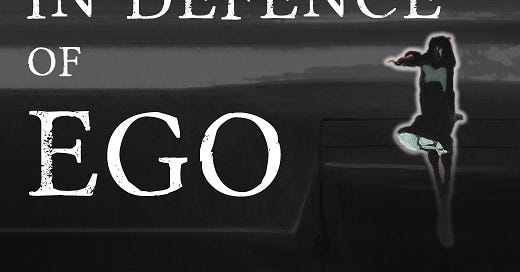Upgrade to paid to play voiceover
Ego is a bad word in our society. Unmoored from its clinical origins in the work of Sigmund Freud, the term has taken on a life of its own as Western culture's part-time boogeyman and full-time pinata.
In the past century the ego has transformed from an obscure Latin word for self into a shadowy demon that must be hunted down and exterminated without mer…
Keep reading with a 7-day free trial
Subscribe to The Living Philosophy to keep reading this post and get 7 days of free access to the full post archives.




